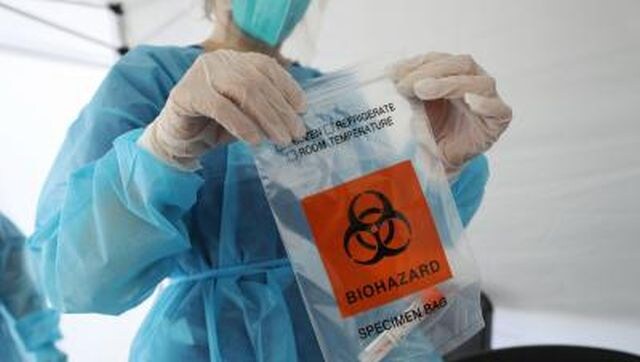Russian doctor warns that Black Death is re-emerging: All you need to know about the deadly infection - Firstpost
Dr Anna Popova has warned that climate change and global warming could cause a comeback of the bubonic plague, which was responsible for the deaths of more than 50 million deaths in the 14th century

Representational image. AFP
If climate change and global warming didn't worry you earlier, then a Russian doctor's latest claim as published in DailyMail, will surely raise fears.
Dr Anna Popova, one of Russia's top doctor, has been quoted by DailyMail as saying that bubonic plague is likely to make a comeback due to climate change and global warming and warned that 'black death' is a risk to public health.
She said: "We do see that the borders of plague hotspots have been changing with global warming and climate change, and other anthropogenic effects on the environment. We are aware that cases of plague in the world have been growing."
Before you scoff off her claims, Russia and China as well as the United States have seen outbreaks of the plague in recent years. Additionally, the United Nations Children's Fund UNICEF warned in August about its resurgence in Africa.
What is bubonic plague?
It is the most common type of plague and is spread by infected fleas that travel on rodents. According to doctors, bubonic plague gets its name from the swollen lymph nodes (buboes) caused by the disease. The nodes in the armpit, groin and neck can become as large as eggs and can ooze pus.
Symptoms
• Sudden high fever and chills
• Pains in the areas of the abdomen, arms and legs
• Headaches
• Large and swollen lumps in the lymph nodes (buboes) that develop and leak pus
What is Black Death?
Bubonic Plague was known as 'Black Death' in the 14th century, causing more than 50 million deaths in Europe. Speaking of the disease, Italian poet Giovanni Boccaccio had said that Black Death was terrifying and indiscriminately contagious. People who were perfectly healthy when they went to bed at night could be dead by morning. Reports state that the bubonic plague arrived in Europe from Asia in the mid-1300s through the ships that sailed into Sicilian port of Messina.
After it struck Messina, it spread to port of Marseilles in France and the port of Tunis in North Africa. It then spread to Rome and Florence and by mid-1348, the Black Death had struck Paris, Bordeaux, Lyon and London.
Treatment
As of today, the bubonic plague can be treated with antibiotics. However, doctors warn that it can be fatal and has to be treated quickly — ideally within 24 hours of diagnosis. It can create infection throughout the body (septicemic plague) and/or infect your lungs (pneumonic plague.) Without treatment, septicemic plague and pneumonic plague are both fatal.
With inputs from agencies

Comments
Post a Comment